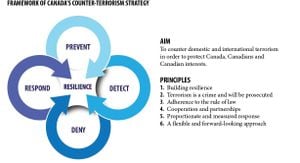Princess Kate has taken a significant step away from royal tradition, declaring her children will not participate in the long-standing and controversial custom known as 'Royal Blooding.' This decision has stirred discussions about the evolution of practices within the British royal family and reflects modern sensibilities.
Traditionally, 'Royal Blooding' involved young royals going on hunts, where they would smear their faces with the blood of the first animal they killed, often a deer or fox. While this brutal practice has roots dating back centuries, it has drawn criticism due to its violent nature, especially amid changing attitudes toward hunting and wildlife conservation.
According to royal expert Tom Quinn, Princess Kate has expressed her strong disapproval of this rite. He remarked, "Charles’ Schwiegertochter, Catherine, Prinzessin von Wales, hat sich durchgesetzt und darauf bestanden, dass es für ihre Kinder kein Blutvergießen geben wird." This shift underlines Kate's commitment to ensuring her children—Prince George, Princess Charlotte, and Prince Louis—are spared from such traumatic experiences.
The topic of royal hunting rituals is not new, but it gained additional attention when Prince Harry shared his own harrowing experiences from the tradition. Writing in his memoir 'Spare,' Harry recounted the distress of being forced to participate: "Ich war schockiert (…) von dem infernalischen Geruch. Mein Frühstück sprang aus meinem Magen hoch." Such memories reveal the emotional and psychological impact of these customs on young royals.
Historically, 'Royal Blooding' has been viewed as part of growing up royal—a rite of passage marking the transition from childhood to adulthood among the British elite. Yet as society evolves, so too do its standards and expectations around such customs. Kate's decision may signal the beginning of more progressive approaches to royal upbringing, one where empathy and sensitivity take precedence over archaic traditions.
While Prince William and Prince Harry, like many young royals before them, endured the rigors and expectations of royal life, Kate's refusal to allow the practice to continue reflects her shift toward prioritizing their emotional well-being. She believes her children should not have to partake in rituals deemed outdated by contemporary morals.
Kate's actions fit within a broader trend of modernizing royal traditions, as both she and Prince William navigate their responsibilities as parents within the spotlight of public life. Unlike her sister-in-law, Meghan Markle, who often faced scrutiny about her role within the royal family, Kate has managed to assert her influence without overtly clashing with royal customs.
This choice also prompts reflection on how royal families worldwide adapt their customs to align with modern values, particularly as concerns about animal welfare become more pronounced. By breaking with 'Royal Blooding,' Kate doesn't just protect her children from violence; she also sets an example of compassion.
The royal family's status has often mirrored the greater societal values. Overall, this movement away from brutal traditions like 'Royal Blooding' suggests positive change within the monarchy, promoting family-centric values and respect for living beings.
The decision resonates with many who have long called for reform within royal protocols. For Kate, this is about her children, the lives they lead, and the legacy she wishes to leave. Her refusal to let her kids undergo the rigors of 'Royal Blooding' is not simply about avoiding bloodshed; it's about cultivating kindness and empathy, values she hopes will shape their royal future.
Princess Kate's assertion reinforces the significance of caregiving at its heart. Rather than perpetuating outdated practices, she has chosen to protect her family and face the scrutiny of tradition head-on. With her direction, it remains to be seen how the royal family will continue to evolve as they balance history with the need for modernization.



